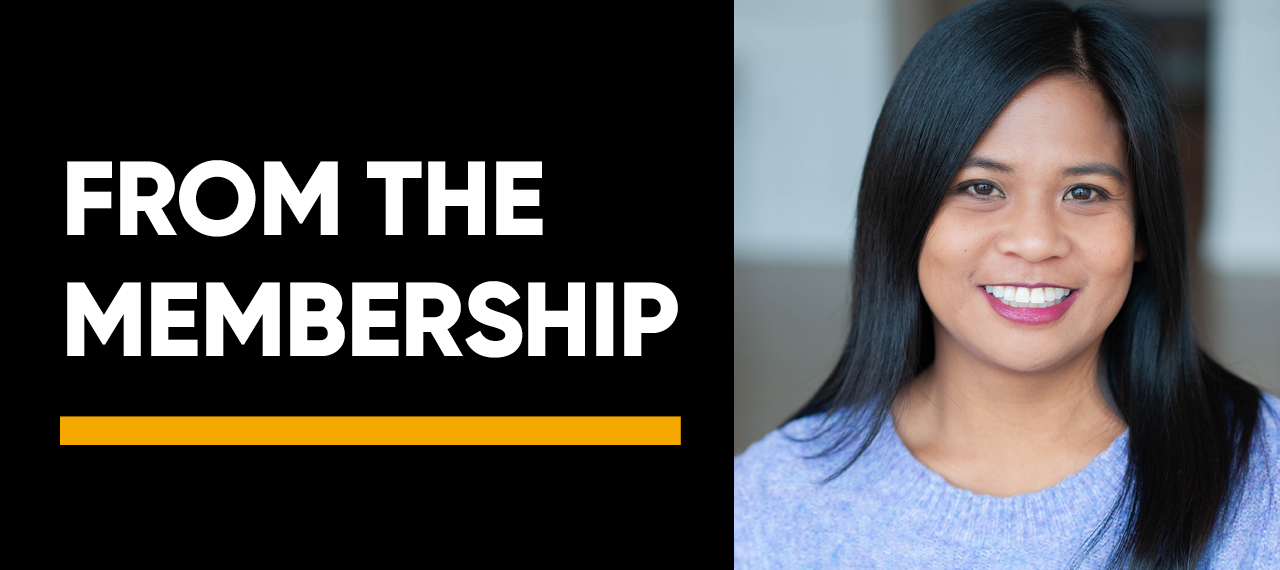
When I was in college, one of my friends told me I was a coconut—brown on the outside but white on the inside. Like me, she was also Filipina and while she meant no harm in this term, she was right. I had grown up in a predominantly white town in Texas so while my parents tried to instill Filipino culture in me, I didn’t really get to see it anywhere else. In fact, in high school a classmate referred to me as, “the Black girl you’re dating” when talking to my white boyfriend. He corrected my classmate, of course, but it showed how very small my town was.
So, when I went away to college and joined the Filipino Student Association, I made sure to get inundated with my culture while still focusing on school. I got to relearn cultural dances I hadn’t danced since I was eight, like the tinikling or the itik itik. I also got to have some home cooked meals that I was missing, like pancit, lumpia, and adobo – although none of it was ever as good as my mom’s cooking.
This story isn’t about food and dances; it’s about how I’ve learned to accept my culture and become less of an invisible minority. I use this term because there are parts of Filipino American history that often gets forgotten, even by me.
I remember having to write a report for school about what it was like when my parents were young. I talked to my dad since he grew up in California and had come to the U.S. at a young age. The one thing that has always stuck with me was when he told me about signs that read, “No Filipinos Allowed or No Dogs Allowed” and how they were used interchangeably. This was due to many anti-miscegenation laws that enforced racial segregation, particularly in California. Having been born and partially raised in California, this was a bit shocking since most of my family was still near Stockton where a lot of this occurred. It also made me more aware of racial injustice and perseverance. They stayed where they weren’t wanted and ended up building a life there – including a big white house where my grandmother and grandfather would house newly immigrated relatives until they could get on their feet.
I ended up moving back to Texas after college but really wanted to be back in California. My sister was attending medical school there and my brother was in Fresno. I decided to move to Los Angeles where I tried my hand in the film industry. One night I was out with some friends, including a few for the first time. I don’t know if it was nervous energy or being in a new town, but I was talking to everyone at the bar. Some I met before, but most of them just started talking to me randomly. This guy in our group said, “I’m going to start calling you the mayor, because it seems like everyone knows you.” He commented on the fact that I talked to everyone as if I was on the campaign trail listening to their stories or just shooting the breeze. Well, that nickname stuck for a while, and I took to it like it was my role.
Coincidentally my maternal grandfather was the mayor of a town called Baguio, the “Summer Capital of the Philippines.” He was a lawyer who would defend those he believed in and often got paid in kind as many of his clients couldn’t afford a lawyer. That nickname for me was fitting, because instilled through my culture and my family is the value of service and humility; it’s what Filipinos are known for. I’ve always jumped headfirst into everything I do expecting nothing in return—until one day, something at work got to me and helped me come to a realization.
It was when a newer engineer thought my co-director was my boss (I had already been at the company for over seven years and had helped to hire the co-director). I felt slighted. I’ve never been about titles, but that just stung. Here I was pouring everything into my career with no recognition.
In the corporate world, we thrive on recognition. Without it we wouldn’t get raises and promotions. I now knew that humility doesn’t need to mean service without the recognition. I finally understood what it means to be Filipino American: to serve through leadership. To advocate for yourself and those who don’t have the means, like my grandmother who helped those who newly immigrated to the United States or like my grandfather, the mayor, who supported the poor and even put some cousins through college who couldn’t afford it.
I eventually moved to Michigan to be close to my husband’s family and in the last few years, I’ve been heavily recruited because I finally said yes to opportunities. I finally spoke up for myself and know my worth. I’ve written several articles for Marketer, presented a learning lab about storytelling, and even gave my Two Cents in Two Minutes for SMPS members. I’ve helped to fundraise money for my community and served as the hospitality chair for the PTO at my daughter’s school. Most recently, I’ve been serving as a Girl Scout Troop Leader where I get to mentor young minds on STEAM (Science, Technology, Engineering, Arts, and Math) topics and entrepreneurship. I’ve helped launch a design podcast, was a guest on a podcast called “A Cup of Confidence,” and am now the content manager for Detroit Moms, including their podcast, “The Unfiltered Mom.” I’ve helped to mentor several colleagues to be advocates for themselves too—to ask for what they are worth!
Understanding how values instilled in me through my culture has helped me not be invisible anymore. It has helped me mentor others to use their unique talents so that they can have fulfilling careers. It’s also why I love SMPS. I’ve been giving to the Society for over 10 years, and they’ve welcomed me, encouraged me, and given me the platform to be an advocate. Like Filipinos, they too are hospitable and humble.
Article written by Krystle English, FSMPS, CPSM.







